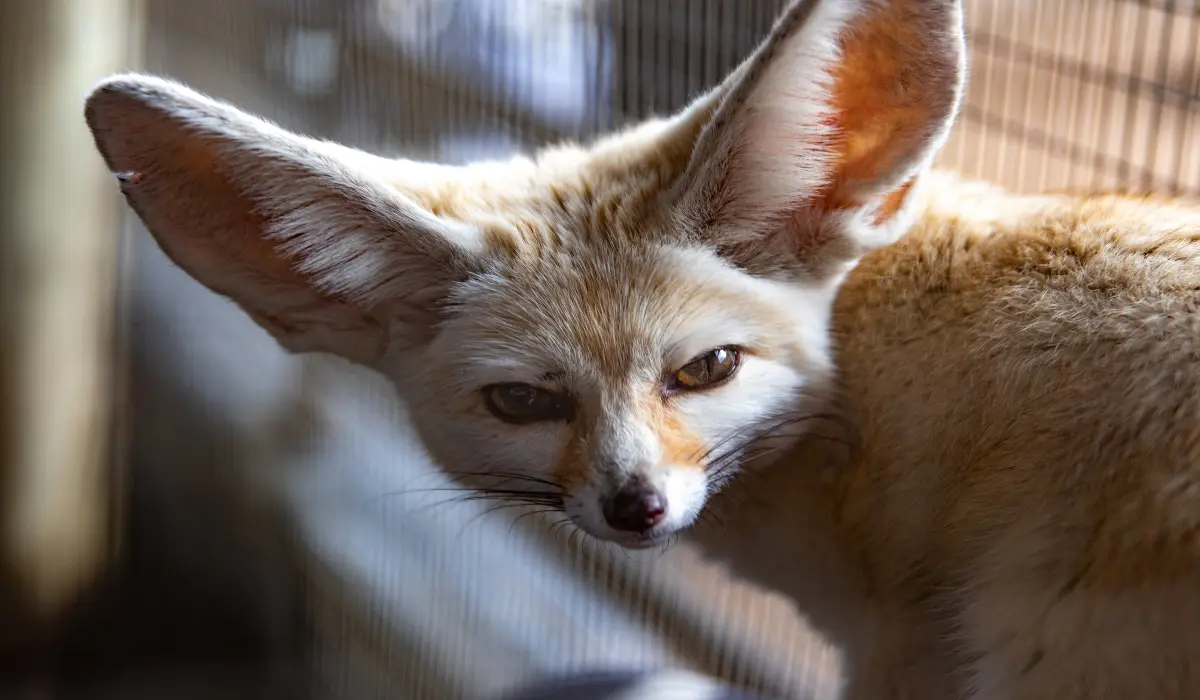Fennec foxes, known scientifically as Vulpes zerda, captivate curiosity and affection, their large ears, tiny bodies, and distinctive behaviors often earning them the title of “world’s cutest fox.” However, beyond their striking appearance lies a fascinating biological narrative that we will unveil today.
Among the topics we’ll scrutinize in this article is one of paramount importance – the average lifespan of a Fennec fox. We’ll explore the factors influencing their longevity in both the wild and captivity, and look into the difference between these two environments.
How Long Does Fennec Fox Live? Facts and Figures
Wild vs. Captive: A Comparative Study
Contrasts exist between the lifespan of Fennec foxes living in the wild versus those nurtured in captivity. In their natural desert habitats of North Africa where they must face scarce food sources, threats from predators, harsh weather conditions, and disease. Fennec foxes have an average lifespan of about 7 to 12 years.
However, in captivity, under optimal circumstances involving ample nourishment, minimal threats, and adequate veterinary care, these fascinating creatures can live up to 10 to 14 years, with some individuals living up to 16 years.
Investigating the Factors: What Influences the Lifespan?
Several variables contribute to this significant lifespan distinction between wild and captive environments. Let’s venture further into these factors.
Scarcity vs. Consistency: Food and Hydration
Fennec foxes are omnivores, feasting on insects, small rodents, birds, and plant matter. Their diverse diet in the desert faces frequent disruption due to scarcity during draughts or changes in seasons. Separately, a consistent, balanced feed in captivity can significantly impact their health and longevity.
Threat Analysis: Predators and Human Activities
In the wild, Fennec foxes face predation threats from larger desert species like the African eagle owl and a few larger mammals. Furthermore, human activities, including hunting and habitat destruction, significantly impact their survival, further reducing their lifespan.
On the other hand, such threats are significantly mitigated in a controlled environment, contributing to a comparatively longer life.
Health Issues: Disease and Parasites
Like most animals, Fennec foxes in the wild are susceptible to diseases and parasite infestations affecting their overall health and reducing their lifespan.
However, systematic veterinary care, including routine vaccinations and parasite control measures typically provided in captive settings, can significantly increase their lifespan.
Role of Human Caregivers: Ensuring Long and Healthy Lives in Captivity
For Fennec foxes in captivity, understanding and meeting their specific needs holds significant importance. Below, we highlight three crucial aspects.
Nutritious Diets to Counter Obesity
While providing a balanced diet resembling their natural food sources, caregivers must prevent overfeeding, which could lead to obesity, posing serious health risks and potentially reducing lifespan.
A diet combining commercial fox food, insects, fresh vegetables, and small fruit portions generally meets nutritional needs.
Spacious Habitats for Exercise and Enrichment
Captive Fennec foxes require ample space for exercise and mental stimulation, crucial for their well-being. Reinforcing enclosures with enriching elements reflecting their natural habitat helps alleviate stress and promote overall health.
Regular Checkups for Ongoing Health Monitoring
Preventive and ongoing veterinary care, achieved through regular checkups and timely vaccinations, plays a pivotal role in their lifespan. Early disease detection can ensure prompt, effective treatment, leading to improved longevity and a better quality of life.
Conclusions and Key Takeaways
To conclude, Fennec foxes‘ unique aesthetic combined with their distinctive behavior make them among the most appealing desert species. Their lifespan varies significantly based on their environment, threats they encounter, the quantity and quality of their food, water sources, and exposure to health concerns.
Understanding these factors and how captive care can prolong and enhance their lives is crucial for anyone interested in the species or looking to become a caregiver to a captive Fennec fox.
Fennec foxes’ journey through life, be it in the harsh deserts or in the comparatively comfortable captivity, serves as a testament to their resilience and adaptability.
Whether they average 7-12 years in the wild or reach up to 14-16 years in captivity, Fennec foxes, with their enchanting appeal and fascinating lives, continue to captivate the hearts of humans across the globe.
By blending the current knowledge on their lifespan with a vigilant approach to their care in captivity, we can all contribute in our ways to prolong and enhance the journey of these adorable creatures on planet Earth.
